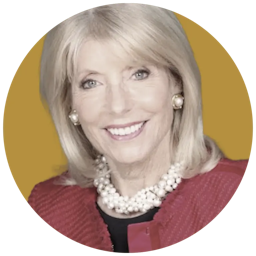An Entrepreneur Who Started With a Cause
This article is from the archive of The New York Sun before the launch of its new website in 2022. The Sun has neither altered nor updated such articles but will seek to correct any errors, mis-categorizations or other problems introduced during transfer.

Tiffany Hott is pretty steamed up about her competitors. They are aggressive, greedy, occasionally rude, and prone to giving away free computers.
Free computers? Yes, that’s how much money is at stake in the afterschool tutoring business, thanks to the generosity of the Department of Education and the new mandates of the No Child Left Behind Act.
It appears that about 300,000 New York City children are eligible this year for vouchers redeemable for tutoring outside the classroom. The vouchers are each worth $2,000.
That works out to a total of $600 million. Admittedly, only some 90,000 families are expected to find their way through the labyrinthine application process. Still, the potential market is huge. It’s no wonder competition is fierce.
Ms. Hott is the founder of TestQuest, a for-profit organization that provides help with math, English, and test preparation. Ms. Hott first offered tutoring in her living room, but the company now has brand new offices on West 37th Street. Demand for the outfit’s services has risen exponentially, mainly because of the newly funded program, and partly because Ms. Hott’s group has acquired quite a faithful following.
It isn’t easy, because she is bucking heads with well-known firms such as Sylvan Learning Systems and the Princeton Review, which have by comparison immense marketing budgets and extensive connections in the educational community. Which brings us back to the free computers.
Ms. Hott’s ire is aimed at the sales tactics of these firms, which she claims have frequently lured clients with free PlayStations, iPods, and reconditioned computers, but it is also directed at their teaching methods, which in her view involve large class sizes, meaning the children may or may not receive the kind of help they need.
TestQuest, by comparison, typically offers 40 hours of one-on-one tutoring in children’s homes or at school. While they do also offer some group sessions, they keep the classes quite small. For the most part, they hire certified teachers, many of whom are bilingual and available to clients after school and on weekends. They encourage parents, who often share their children’s language and reading difficulties, to sit in for free and learn along with them.
TestQuest offers some pretty convincing evidence to prove the effectiveness of their method. Last year, the firm tutored roughly 2,000 children. According to the company’s promotional material, 94% of their third grade clients met government standards in language arts after tutoring, compared to 70% before. The improvement for 12th-grade students was even more dramatic. After tutoring, 86% of the students met math standards, compared to 23% before.
Ms. Hott is passionate about her work, which was a cause before it became a business. She grew up in Brooklyn, graduated from high school at 16, and went to NYU, where she graduated magna cum laude with a degree in marketing. After working for two years in the financial industry, she returned to school and earned a law degree at the University of Pennsylvania.
While in law school, she volunteered with a group of black students who provided SAT tutoring to youngsters in the inner city. Back in New York, while studying for the bar exam, Ms. Hott decided to earn some money tutoring children, and took on several from two schools in Harlem. “I used to tutor kids on the steps of the public library. I worked with the principals of the two schools, and it grew by word of mouth.”
“That’s when I decided to try to make a difference in children’s lives. I took a chance, spent $300 on a fax machine, and set up this business in my apartment.” Ms. Hott’s goal was to provide, at $20 an hour, tutoring of the kind that can cost $200 an hour or more.
Then the No Child Left Behind program arrived, and business went through the roof. To be eligible for this program, children must attend a Title I school (which receives federal funding because of performance or the number of children at poverty level) and must meet the free-lunch test.
Ms. Hott estimates that her firm may sign up 5,000 to 6,000 students this year, which would put her revenues at $10 million to $12 million. To help handle the growth, she recently hired her father, who resigned from his job in chemical engineering to take over as comptroller.
Apparently the Department of Education is planning to review what exactly is being done with the $2,000 that each firm receives. This may prove beneficial to Ms. Hott, who believes her group is truly adding value with an above average program.
“I sleep well at night. In this jaded age, I’ve done something that’s actually improved people’s lives.”
Even without free computers.

